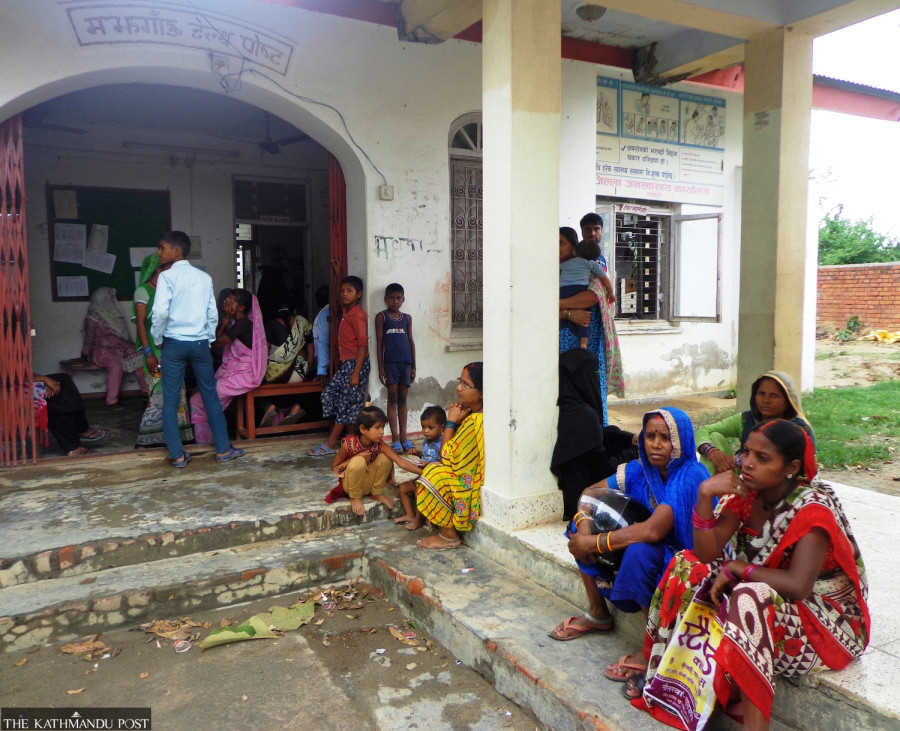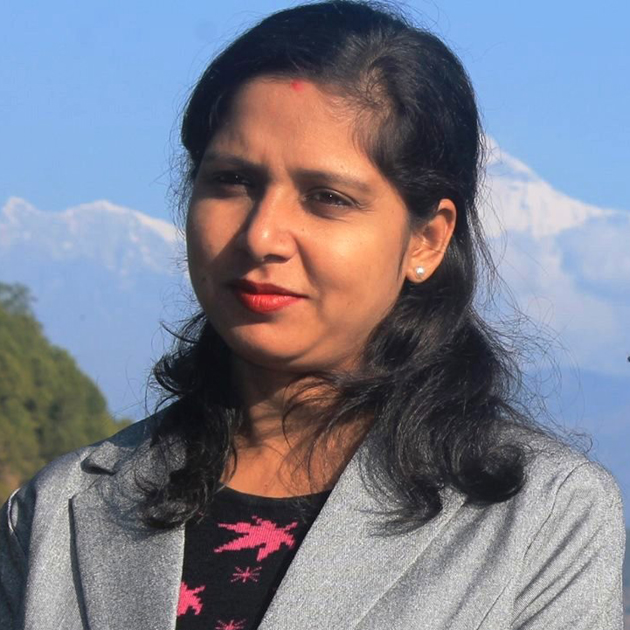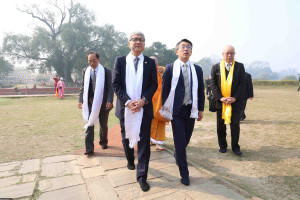Lumbini Province
Men in Lumbini reluctant to adopt permanent family planning measures
Of the 1,724 people who opted for permanent family planning measures in Lumbini last year, only 235 were men.
Amrita Anmol
In the last fiscal year, the government set up permanent family planning camps four times in Kapilvastu district of Lumbini Province. The camps were organised for both men and women but the participation of men was significantly low.
According to the record of the provincial Ministry of Health, Population and Family Welfare, a total of 113 women adopted family planning measures in Kapilvastu through the family planning camps in the last fiscal year. Correspondingly, there was only one man who opted for permanent family planning measures in the district in the same time frame.
Health officials in the province say that men are not keen on adopting family planning measures such as vasectomy and permanent sterilisation, and expect women to go through a minilap procedure wherein the fallopian tubes are occluded to avoid conception.
“Even the man who came for a vasectomy agreed to the procedure because his wife had health issues with a prolapsed uterus,” Dr Binod Giri, director of the Lumbini Health Directorate, told the Post.
Thirty-five-year-old Janaki Pasi of Mayadevi Rural Municipality-2 in Rupandehi and her husband Jog Raj Pasi, 37, have three children—two sons and a daughter. Janaki, who is an asthma patient, had persistently urged her husband to get a vasectomy after the birth of their second child. But her husband refused.
Janaki conceived her fourth child last year but her health did not allow her a full-term pregnancy. She aborted her two-month fetus and underwent a minilap in Butwal.
“I am not in the best of health so I had requested my husband to get a vasectomy but he refused. So I decided to undergo permanent sterilisation since I can’t keep having babies,” Janaki told the Post.
Jog Raj, who had accompanied his wife Janaki when she decided to abort the fetus and undergo permanent sterilisation, said he did not want vasectomy because of the social stigma attached to it.
“All the men in our village are virile. I could not have become the only man incapable of fathering children. My friends and neighbours would think poorly of me,” said Jog Raj.
Out of 1,724 individuals who adopted permanent family planning measures in Lumbini Province in the last fiscal year, 1,489 were women while only 235 men underwent vasectomies, according to the data of the Ministry of Health Population and Family Welfare.
In Nawalparasi (West), 489 individuals adopted permanent family planning measures in the last fiscal year. Among them, only nine were men.
In Rupandehi, 144 women underwent minilap and 13 men underwent vasectomy last year whereas 344 women underwent minilap and 15 men underwent vasectomy in Bardiya. In Dang, the number of women who underwent minilap in the last fiscal year was 96 while only nine men underwent vasectomy. Similarly, 62 women underwent minilap and 13 men underwent vasectomy in Pyuthan last year.
Giri from Lumbini Health Directorate said that the health authorities and health workers have been unable to convince men to adopt permanent family planning measures, as most of them feel their manhood would be questioned if they undergo such procedures.
“Aside from the fear of social ostracism, men think they would be deprived of sexual pleasure if they undergo vasectomy,” said Giri. “This line of thought has greatly affected our efforts in sensitising men to the importance of family planning and making them understand that it’s not only the women’s responsibility to adopt family planning measures.”
However, the ignorance in men in regards to permanent family planning measures is not limited to Lumbini Province, says Giri.
“All men, whether in the Tarai plains or the hill districts, are hesitant to adopt permanent family planning measures, and they turn towards women to take care of things in case of unwanted pregnancies,” he said.
According to the data of the Department of Health Services, a total of 1,001,806 women across the nation underwent minilap in the last fiscal year 2020/21 while the number of men who underwent vasectomy during the same year is just 316,267.
The Provincial Ministry of Health, Population and Family Welfare launched an interaction and counselling programme in Lumbini Province in the last fiscal year since the participation of men in family planning camps was very low.
Health workers informed both men and women that there are no side effects to vasectomy and minilap and that they would be able to live a normal life even after the procedures. But the men were still reluctant, says Neha Thapa, a nursing officer at the provincial ministry.
“Vasectomy is comparatively easier to perform than the permanent sterilisation carried out on women. Vasectomy is reversible but minilap is not. Even with the facts and case studies presented to men, only a few of them came forward for the procedure,” said Thapa.




 9.51°C Kathmandu
9.51°C Kathmandu















